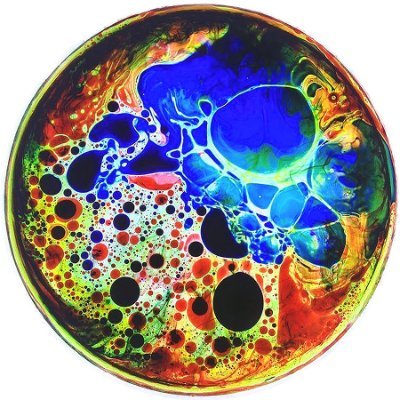The Black Holes in the Plant Universe
Today, we move rapidly into The Planthropocene Era where petrochemicals must be replaced by
bioproduction. Nature can solve these issues, if we look in the right places and collaborate with nature.

Green photosynthetic organisms play a vital role in this transition as providers of both food, biomaterials and energy as well as essential medicines, nutraceuticals, condiments and colorants. These molecules are typically produced in very small amounts in the plants, making extraction difficult and harvest in nature unsustainable. However, some plant species like the vanilla orchid and sorghum possess an intriguing ability to produce and store some of these rare and sparingly soluble substances in liquid form at seemingly impossibly high concentrations in bio-condensates – “Black Holes”. This research initiative aims to elucidate the unknown mechanisms in the plant cell that orchestrate the establishment of such “Black Holes” and define new options for future plant-based production of high-value natural products. The knowledge gained will bring our understanding of molecular mechanisms determining plant plasticity to an entirely new level and guide development of crops with increased robustness to climate change.
The dark matter that matters?
Guided by a number of preliminary results in our lab, we propose that these extraordinary biocondensates– or ‘Black Holes’ – of largely undefined origin and nature are stabilized by and composed of NAtural Deep Eutectic Solvents (NADES). This NADES phase would then represent a yet uncharacterized third liquid phase in the live plant cell and function as a crucial solvent of bio-active natural products.
Aims of this project
We propose that NADES-based bio-condensates in which the dissolved bio-active natural products reach seemingly impossible molar concentrations – “the black holes”- may also be formed in vivo in plants. This is envisioned as the mechanism enabling specific plants to accumulate natural products equivalent 30% of tissue dry mass. Storage in such NADES based bio-condensates would overcome cell auto-toxicity issues. NADES-based bio-condensates may also up- or down-regulate the affinity of co-stored enzymes and thus reconfigure and fine-tune numerous aspects of plant metabolism. Cross-disciplinary studies on the formation and constituents of NADES-based condensates will be carried out using sorghum, vanilla orchid, Indian coleus and sophora as experimental systems. The research initiative will increase our understanding of the factors controlling plant plasticity in a changing climate and enable design crops with increased robustness and medicinal plants with unprecedented high levels of bio active natural products making biological production of these economically feasible.
Collaboration:
 Nanna Bjarnholt Associate Professor E-mail: nnb@plen.ku.dknnb@plen.ku.dk Phone: +4535331136 |
Tomas Laursen Phone: +4535333329 |
|
Elizabeth Heather Jakobsen Neilson
Assistant Professor E-mail: en@plen.ku.dk Phone: +4535331136 |
Irini Pateraki Phone: +4535331136 |
Other partners:
Funded by:

The Black Holes in the Plant Universe has received a five year funding from Novo Nordisk Fonden.
Project: The Black Holes in the Plant Universe
Period: 5 Years (01.10.2019-30.09.2024)




 Birger Lindberg Møller
Birger Lindberg Møller